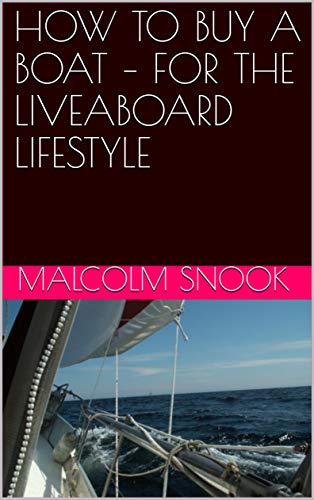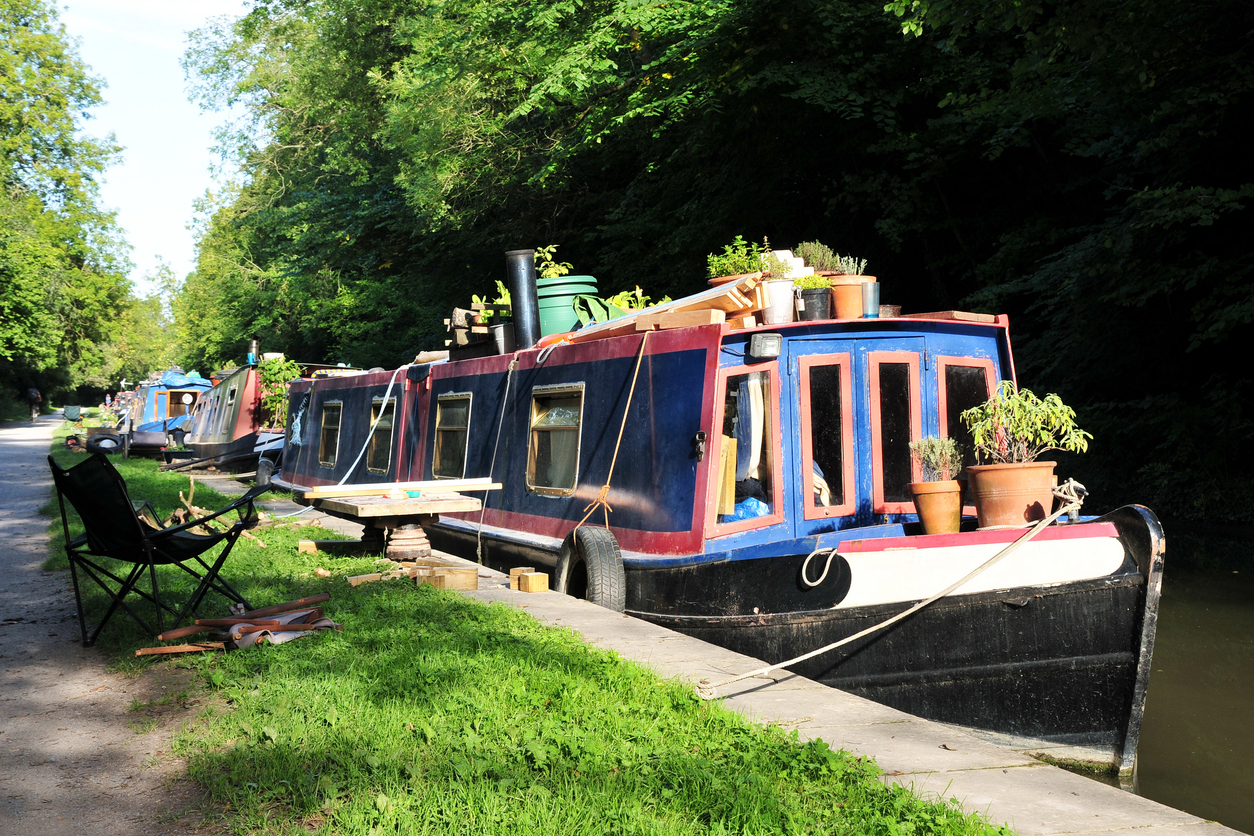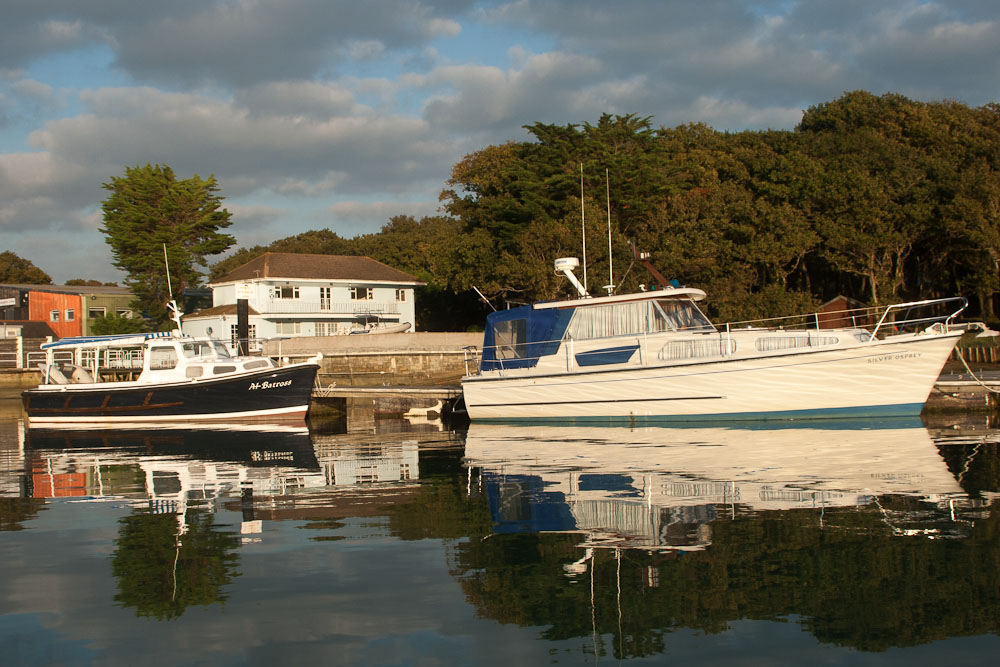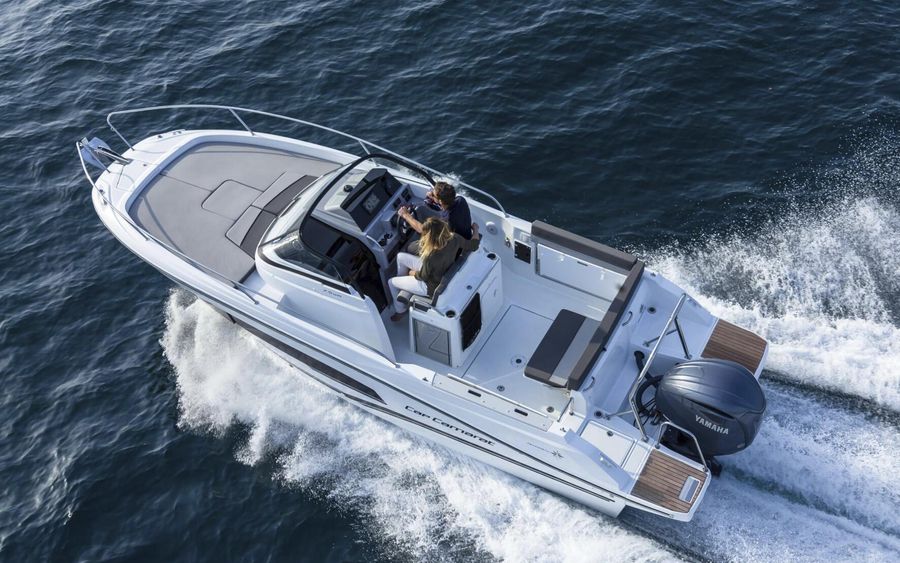Living on a boat is really a great way to live. It's not without its challenges but the rewards are spectacular. New horizons, new adventures, new friends all beckon. I lived aboard for a decade and travelled widely, you may want to do the same, or you may find that community life, living in a marina suits you just fine. Some marinas offer communal activities such as dancing, music lessons, reading groups, tennis courts and the ambience of living on the water cheek by jowl with wildlife yet having neighbours who may have specialist skills when something goes wrong, not to mention a social life, all these things can make marina living very attractive.
I'm writing today about making sure your boat is suitable for the liveaboard lifestyle from the perspective of someone who wants to travel as I did. There are some things the liveaboard who sails has to consider, that the full time marina resident possibly doesn't; generally boats in a marina don't get thrown around like one in a mid Atlantic storm and generally speaking boats in a marina have access to mains electricity, ready access to fresh water, showers, toilets and waste disposal, and mechanics or engineers. However you don't have to lift a house out of the water for antifouling, or make sure it doesn't sink, so there are considerations which apply to all who choose to live on a boat, wherever that may be.
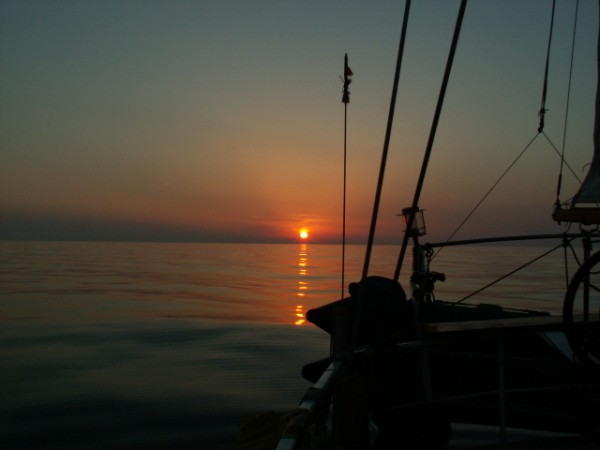
You may have a boat that you already own, which you now want to live on and which will need some adaptations to make it suitable as a full time home. You may be looking to buy a boat which is already suitable for the liveaboard lifestyle, the subject of my most recent book, or you may have fallen in love with a boat, for its sailing qualities, or because it's a classic, whatever the reason it's not yet suitable to become a full time home. If living aboard is your goal this article should provide food for thought about what needs to be done to meet your personal requirements.
It seems logical to start by considering the many things most people take for granted living more conventionally on land; things such as lighting, heating, insulation, storage space, toilet and washing facilities, ready hot water as well as fresh water, fridges, freezers, laundry, ironing boards, cleanliness and hygiene, internet connection, entertainment, cooking facilities, last but not least security and safety. As mentioned previously there are aspects like antifouling which don't come anywhere near the thoughts of conventional homeowners, nor do things like engine maintenance or the age of the rigging.
Really there's too much for a short article, but it hasn't passed me by that most sailors are pretty resourceful people and if this article helps focus your thoughts I'm sure you'll come to your own conclusions and do what's right for you. It seems politically correct these days to put safety at the head of everything but I'm going to take it for granted that sailors appreciate the need for safety, there's no RAC at sea for instance, but rather than make safety a topic in its own right I'll touch on it as we consider the practical aspects of becoming a boat gypsy. Regarding safety specifically, you can always get advice from a surveyor or take an RNLI safety check.
Let's start with electricity, one of the phrases I recently had to translate on a language course I'm taking was 'what would our lives be like without electricity?' it's indeed food for thought. The invention of the light bulb gave rise to the electricity generating industry which opened the door for inventors to give us everything from radio and tv, telephones, washing machines, dishwashers, hair dryers, electric irons, microwaves, the list is vast.
Should you wish to turn the clock back and use oil lamps you will still need electricity on board if only for safety features such as VHF radio and of course engine starting, but most people living on a boat do not want to sacrifice everything modern living has given us. A robust, reliable electrical system is a must. If I were writing this for a specific boat of a known size I might make specific recommendations, however a list of things to consider will have to suffice. I would always recommend that your boat has the facility to plug into the marina mains supply and a range of adaptors if you're planning on travelling internationally. I'm talking about adaptors for the mains input cable here, they can vary, but you'll need a suitable number of three pin sockets about the interior of the boat and the standard travel adaptors are worth carrying too, as you'll be buying something electrical abroad almost certainly, or borrowing a power tool and so on. You may also want screw in waterproof electrical connectors on deck, or in the wheelhouse or cockpit for portable sailing aids, anchor lights and so on.
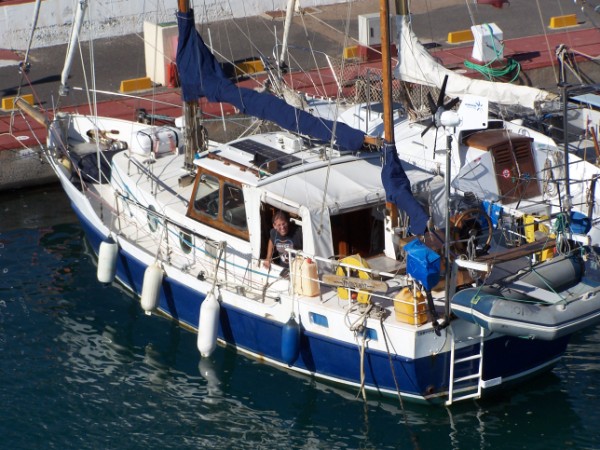
A good regulator to prevent overcharging of batteries is essential and for those who wish to travel, live at anchor for extended periods, sail long distances you'll want to be able to generate your own electricity without running your engine all the time. I regard a wind generator and solar panels as indispensable personally. As a solo sailor, when the wind was strong enough to sail, my wind generator and solar panels combined provided enough power that I could have the autopilot on virtually around the clock if necessary.
An inverter is a useful investment, but unless you run a generator don't use power hungry devices through it. Some larger boats will have a built in diesel generator as well as an engine. I carried a small petrol generator for emergencies myself. You'll need both deep discharge domestic batteries and engine starting batteries. Your domestic batteries should be able to back up your engine starting batteries in an emergency, but your engine starting batteries should never be used for anything else, so, switching, regulating and charging are all crucial. You don't want to be unable to start the engine in a sudden squall off a rocky lee shore. I know some sailors will pooh pooh the idea of getting into such a predicament but anyone can make a mistake.
Battery manufacturers make many claims, not least for maintenance free and gel batteries and so on. My personal experience is limited to a well known brand of 6 volt lead acid golf cart batteries, wired in pairs to give 12 volts. Two sets in ten years seems acceptable to me and I have heard horror stories from people with far more expensive batteries fitted. Do your homework, make your choice. If you do opt for lead acid batteries like mine though, ensure you have adequate space or a good system for topping up with distilled water.
As well as a robust system with ample battery and charging capacity, not wasting power means you can keep the lights on longer so to speak. LED lighting is a real advance and easy, and nowadays cheap to install. Electricity will power your navigation systems as a rule, certainly your on board communications, it can provide you with entertainment such as music, radio and tv in certain places, it will power or charge your laptop, sat phone if you choose to take one. It's crucial to get it right.

If you take a survival course on land you'll be told that shelter is the number one priority. Your boat provides a roof over your head, but lets consider insulation and heating. To avoid writing an entire book here you'll have to do some more research yourself. Steel boats are probably the worst regarding the need for insulation and need the most, but all boats will need some. There are various options, some of which carry a fire risk so consider carefully.
It can get too hot as well as too cold, so as well as insulation, think about ventilation, wind scoops and mosquito screens. In regards to heating I had one of the diesel powered hot air blowers plumbed in. I won't go into brands, but mine was hugely effective and heated every cabin including the heads, however it was temperamental and susceptible to the slightest voltage drop. Another reason for a robust electrical system and maybe have the engine running during the start up phase if you're not plugged into the mains. Carry spares especially of the little screens which can soot up.
Generally I only used the diesel heater in extremis. In a marina a small electric fan heater in whichever cabin I was, proved entirely adequate even in very cold temperatures. For my next boat however I'm drawn to a diesel stove. I didn't carry a portable aircon, let alone have it built in, nor did I carry big fans but I have liveaboard sailing friends who did carry such equipment.
Water is crucial to your comfort as well as being essential to support life. I chose a boat with two very large water tanks and a hot water tank with an immersion heater plus the facility to heat water by running the engine; a pump would circulate water through a pipe that passed through the engine header tank and back to the hot water tank.
A hot shower can really revive you and I regard hygiene as essential too. My boat had a holding tank for black water, which I replaced later with a larger one. Some countries now want you to have a holding tank for grey water too. I have some sympathy with that. I started putting washing up water down the toilet to go into the one large holding tank, the more you see of the world the more you care I think.
You'll also want as much tank capacity as you can have for diesel fuel. Especially if you use it for heating too. Generally a good idea I think as you don't want to be carrying too many different types of fuel. Hence I wouldn't go for a solid fuel stove. Again my steel yacht, slow but spacious, had two very large diesel tanks, if one were to become contaminated it could be isolated. Look also at your filters, particulate and water separating. Carry spares and consider additives to keep your fuel clean as well as additives for keeping your water healthy. In hot climates I used a camping shower, a bag hung in the rigging, heated by the sun, over the deck. This gave me a hot shower without needing energy from the boat and rationed the water too!
The size and design of your boat will dictate the number, size, location and shape of things like tanks but adequate tankage for water, fuel and waste are a must as is a macerator pump and a facility to pump out waste to a marina facility, not to the water in a marina or near the shore please. Pump out to sea may be necessary in some blue water sailing situations. If you're living in a marina and happy to use shore facilities exclusively you may think differently about some of these requirements.
You can survive longer without food than water, but eating and eating well matter. If you have the space and electrical capacity to run a freezer that's great. I made do with as much storage as I could allocate to food and a small top loading fridge. Top loading, the door doesn't fly open in a storm, if it has to be front loading make sure it's lockable. Sounds awful, but powdered milk reconstituted before use and chilled in the fridge, not too bad when fresh and when the long life has run out. Doesn't take up much space either, but does of course need water as do dried foods, rice, pasta and so on. Talking longer passages here. I had a water maker and a solar still. Never used either, but then I had a lot of water capacity on board, your choice. The solar still was really only for a survival situation, a water maker needs to be pickled to keep it safe and hygienic if not in regular use.
Cooking; as with a hot shower, a hot drink is also good for morale especially on a cold dark night at sea. Hot food is good too frankly. Most boats are equipped with bottled gas cooking facilities. I carried a kettle I could put on the gas hob and an electric kettle for use in marinas. That and the fan heater were especially good to have where the marina fee included electricity. I also had a portable plug in electric hob, two ring for the same reason.
Mostly you'll be reliant on gas. Calor gas is not available in the northern Baltic (it freezes) and different countries around the world have different gas bottles, gasses and adaptors. Some places you can exchange an empty gas bottle for a full one, some places you can get your bottle refilled, sometimes you may need to change to a different type of bottle and gas. Make sure your stove is adaptable, carry adaptors and valves for different gas bottles, be prepared to make changes and remember bottled gas is your biggest onboard danger. Carry gas alarms and make sure your storage facilities are safe. Ensure that all pipes and so on are in tip top condition and that any gas that does leak flows overboard if possible.
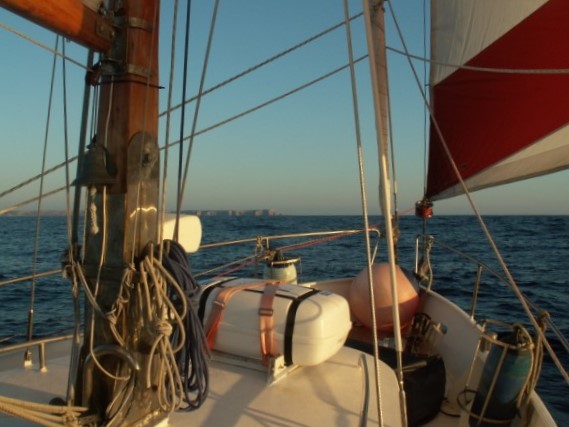
The next big consideration is storage. I chose to take a travel iron since I could put a towel on the wheelhouse's removable table and use it as an ironing board, I also took smart clothes as well as casual, rough and sailing clothes. I chose to take sports gear and books and music. Moving from a three bedroom house to a thirty five foot yacht does focus the mind however. Some things are luxuries, others necessities, I had no room for a washing machine, tumble dryer or dishwasher. Some luxury yachts do of course. I did hand washing of clothes in a large, strong bucket and used laundrettes or dry cleaners occasionally on my travels.
Storage was allocated to tools, no RAC at sea as mentioned before, I also carried spare oil and fuel filters, nuts, bolts, screws, bulbs, pipes, even paint (steel boat), lubricants, abrasives, spare pumps of various types from bilge pumps to fuel pumps. Rigging parts, running rigging, warps, fenders, it's a long list.
I took what I thought was a reasonable supply of books, turned out to be too many, yachtsmen and women are frequently happy to do book swaps. I took a number of CDs and DVDs but not the packaging, I put them in wallet type holders which made it very convenient for the burglar to swipe the lot, but for a long time gave me plenty of choice. These days I use an iPod, considered retro now but carries a heck of a lot of music and you're unlikely to use a streaming service mid Atlantic.
What you have on your liveaboard boat is your choice of course but some advice is pertinent if you're going to travel. Tools, spares, insulation materials and anything you might need in an emergency must be in an accessible place and you must know where, in your head. Everything must have a home where it won't be thrown about in a storm. The lived in look is fine in a marina. I drew a diagram of my boat showing every singe cupboard and storage location. There just happened to be twenty six, so in each space on the diagram went a letter. I made a couple of copies and laminated them.
Try to put things you'll need more often in more accessible places and keep a notebook of what's in each locker, space, under bunk compartment to tie up with the laminated diagram. Destroying the bed or getting the sole up or pulling everything out of the wardrobe only to find what you're looking for isn't there is no fun.
Already this article is probably too long, but the essentials of life have been largely covered. I used a copper based antifouling in order to have fewer lift outs. Living on your boat when it's on the land for periods of maintenance is part of the lifestyle and working on your boat yourself makes you more familiar with the systems and has benefits, but as you get older you'll want to spend less of your life climbing ladders. We could go into many more issues, but really the only very major one left is security. After ten years away, visiting reputationally dangerous places I got burgled in London on my return.
Most yachts have wooden or perspex doors and hatches. How much you beef them up, or add bars, what quality of padlocks you use, whether you have an alarm system, all personal choices. The marina I used claimed to have CCTV and 24 hour security, they didn't but it's the exception not the rule. Most marinas offer good security so talk to them and take a look. There seem to be thieves who specialise in outboards and dinghies, I always kept mine locked and or chained up and they weren't stolen. At anchor you're fairly safe although criminals can often swim or steal a boat but you can't eliminate all risk. Being on board yourself is a fair deterrent and there's almost certainly more crime on land.

I'm sure you can think of things I should have covered, but it's an article not a book. Please take a look at my books if you liked this piece. In the end the title posed a question and the answer is that if you live on board, your boat is a liveaboard, but the level of comfort and convenience can vary, so think through what matters to you. On that basis I hope this article helps, all the best and I hope you enjoy the way of life.
If you have the ambition to travel the world by sea, then this book will guide you through how you can turn that dream into a practical reality, from buying the boat to finding the correct training. Click on the book below to purchase a copy.
